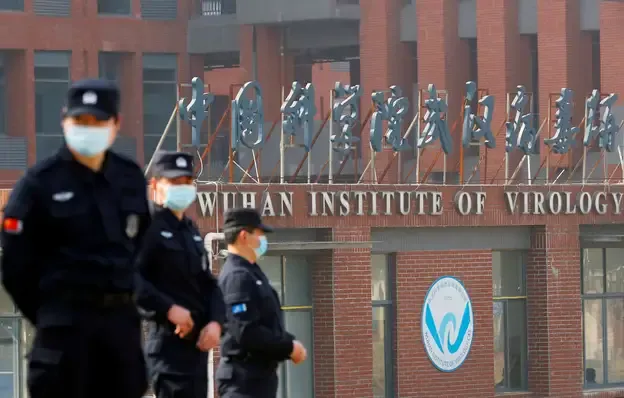The World Health Organization (WHO) said Wednesday that a new task force could be the last chance to find the origins of the COVID-19.
SIGHT: PAHO on Peru’s decision to vaccinate adolescents: it should be done “only after vaccinating all adults”
The organization nominated 26 experts to join the team, the Scientific Advisory Group on the Origins of New Pathogens (Sago).
More than a year and a half since the virus was detected in the Chinese city of Wuhan, the question of how it first arose remains unanswered.
SIGHT: COVID-19: Booster Vaccine Combination Raises Antibodies, Preliminary Study Reveals
The team will investigate whether the virus passed from animals to humans in Wuhan markets or was leaked in a laboratory accident.
China has strongly rejected the second theory.
SIGHT: Harassment and threats against scientists who speak of COVID-19 in the media
In February, a WHO team tasked with investigating the origins of the covid traveled to China and concluded that the virus it probably arose from bats, but more research was needed.
But the director general of the World Health Organization, Tedros Adhanom Ghebreyesus, later said that the investigation had been hampered by a lack of data and transparency from China.
Prevent future outbreaks
The proposed members of the Sago group include six experts who visited China as part of the previous team.
Apart from the coronavirus, Sago also investigate the origins of other high-risk pathogens.
“Understanding where new pathogens are coming from is essential to preventing future outbreaks,” Tedros said.
In a joint publication in the magazine Science, Tedros and other WHO authorities said that “a laboratory accident cannot be ruled out.”

Michael Ryan, WHO emergency director, said Sago’s work may be the “last chance to understand the origins of this virus.”
The announcement of the new group comes as news network CNN reported that China was preparing to analyze tens of thousands of blood bank samples taken in the first months of the pandemic.
But Chen Xu, China’s ambassador to the UN in Geneva, said Sago’s work it should not be “politicized”.
“It is time to send teams to other places,” he said.
- PAHO on Peru’s decision to vaccinate adolescents: it should be done “only after vaccinating all adults”
- COVID-19: Booster Vaccine Combination Raises Antibodies, Preliminary Study Reveals
- Harassment and threats against scientists who speak of COVID-19 in the media
- Cuba tests in Italy the efficacy of its vaccine against COVID-19 Soberana Plus
- Hospital corridors may have higher viral loads than COVID-19 patient rooms
- EMA ends CureVac vaccine evaluation after trial cancellation
- COVID-19 | Russia says its Sputnik Light vaccine is 70% effective against Delta variant
- “Doctors treated my mother like a guinea pig”: scandal in Brazil over misuse of drugs against COVID-19
- COVID-19 | Pfizer will test the “immune response” to its vaccine in an entire Brazilian city
- AstraZeneca vaccine: Peruvian volunteers will be followed for two years
- The WHO officially defines persistent COVID-19 as a disease: what symptoms does it present?
- CureVac Cancels Initial COVID-19 Vaccine Project
- Merck Pill Treatment May Be New Weapon Against COVID-19, WHO Says
- Merck Pill Treatment May Be New Weapon Against COVID-19, WHO Says
- COVID-19 | Why do WHO experts say that the Sinopharm vaccine requires three doses?
- Pfizer and AstraZeneca Vaccines Reduce Risk of Severe COVID-19 by 90%, Study Confirms
- AstraZeneca Experimental Drug Reduces Severe COVID-19 Cases or Death by 67%
- Molnupiravir | What You Should Know About MSD’s COVID-19 Pill
- Ivermectin: How Fake Science Invented a “Miracle” Drug Against COVID-19
- Third dose reduces the risk of severe illness from COVID-19 by 96%, according to Chilean study
- What to answer to those who still doubt whether to get vaccinated against COVID-19
Follow us on twitter:
!function(d,s,id){var js,fjs=d.getElementsByTagName(s)[0],p=/^http:/.test(d.location)?’http’:’https’;if(!d.getElementById(id)){js=d.createElement(s);js.id=id;js.src=p+’://platform.twitter.com/widgets.js’;fjs.parentNode.insertBefore(js,fjs);}}(document, ‘script’, ‘twitter-wjs’);
.

:quality(75)/cloudfront-us-east-1.images.arcpublishing.com/elcomercio/3GIVU3CSFZBNFKOER5JTHB57GI.jpeg)

:quality(75)/cloudfront-us-east-1.images.arcpublishing.com/elcomercio/YNJJ5KXGSVGN5I6A7KZ4XGPHTI.png)

:quality(75)/cloudfront-us-east-1.images.arcpublishing.com/elcomercio/6G5XL2QU4FHDFH3F7T2PKBLRM4.jpg)
:quality(75)/cloudfront-us-east-1.images.arcpublishing.com/elcomercio/LSB5ARIACJHBTHCPH7M5NFF7ME.jpg)
